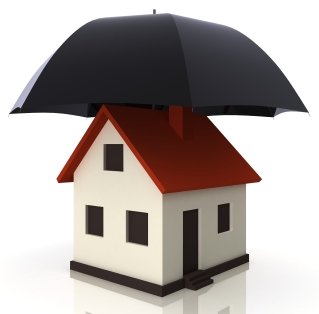
The place you consider as your home sweet home also harbor some risky zones. All too often, because you feel comfortable inside the house and you don't see a lot of issues present, it's easy to overlook problem areas. However, disregarding the maintenance needs of these spots can lead to inconveniences that may range from costly future repairs to more dangerous consequences, such as house fires and carbon monoxide poisoning. So before it's too late, look at these four problem zones around your house and discover a few simple precautions you can take to keep you and your family safe against the dangers they bring.
Roof system
Your roof serves as your home's first line of defense against a wide variety of outdoor elements. On the other hand, its drainage system, which is made up of the gutters and downspouts, plays an integral role in directing water away from the roof and foundation.
During winter, a roof that is warm melts snow. Melted snow runs off into the eaves where it refreezes, forming into ice dams. Such buildup then forces water beneath the shingles, causing leaks that get inside your house. Meanwhile, gutters and downspouts that are not properly cleaned prior to winter can be clogged with leaves and other debris that will block the flow of water. If left unattended, water can overflow and pool around the foundation causing leaks inside the basement.
To avoid any of these, the most important precautions you can do is to beef up the insulation on your attic and integrate proper ventilation to keep your roof cool. Equally important is to regularly clean gutters and downspouts every spring and fall to prevent blockage.
Basement
Since the basement sits at the lowest level of the house and becomes the catchall for household clutter, it is likely that you do not frequently visit this place. However, take note that this room is particularly susceptible to mold and mildew growth, as well as radon and carbon monoxide. If left un-addressed, these can cause health problems ranging from simple headaches to serious ailments like respiratory issues and even cancer (in the case of exposure to radon).
One of the most important steps you can take to avoid your basement from becoming the home of molds and other dangerous elements is to seal up the cracks in the foundation which serve as the points of entry for moisture and chemicals. It will also be best to have a professional perform carbon monoxide and radon tests in your basement.
Fireplace
A few weeks more and winter is here. That means you will be using your fireplace to keep yourself warm. Beware, however, that burnt wood produces creosote that is highly flammable and can cause chimney fires. So before the wood-burning season begins, clean up your fireplace. Have a professional cleaner sweep your chimney at least once a year and add a screen to your firebox to prevent errant sparks from flying out of the hearth.
Electrical System
Over time, the wiring in your home can corrode and short out, starting a fire. Some of the clear signs that your electrical system is in trouble include flickering lights, blown fuses and electric shock whenever you touch the switches, appliances and walls in your home. If you notice any of these, your best bet is to ditch old circuit breakers and replace them with arc-fault circuit interrupters. If you don't have the right knowledge about repairing wires, it is best to contact a trusted electrician to inspect the house and address the problems at hand.
